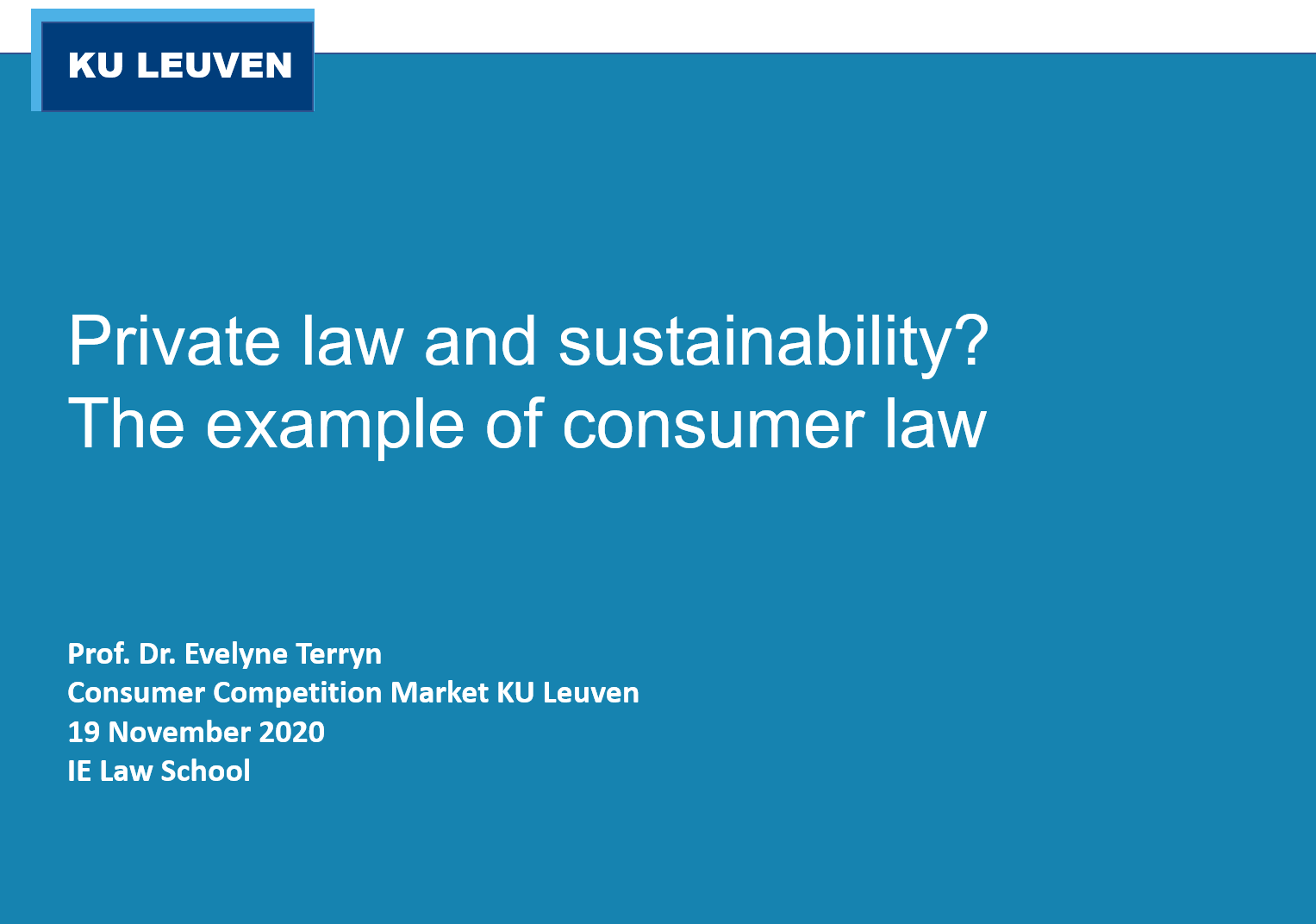
20 Nov Private law and sustainability? The example of consumer law
Evelyne Terryn, Professor at KU Leuven, Faculty of Law
During her talk, Professor Terryn focused on the need for private law, especially in the domain of e-commerce, to make changes in order to incentivize more sustainable market behaviours. She particularly emphasized how we must find the balance between the interests of traders, the interests of consumers, and environmental sustainability.
Professor Terryn started by explaining how sustainability is defined as meeting the needs of the present generation without harming the future generations. All fields of law, and particularly private law, should take sustainability goals into account and think of reforms needed to help change ongoing unsustainable practices in the market.
The ecological impact of electronic commerce is significant. In the EU, currently, consumers have the right to return goods that they purchase online within a specified period and without any price penalty for the return. This is guaranteed by the right of withdrawal in the Consumer Rights Directive. Additional—and excessive—packaging, failed deliveries, extra return deliveries, and the frequent damage of goods in the process, are all among the additional environmental costs that frequent returns result in. As Professor Terryn explained, the current legislative framework is basically rewarding consumers that habitually purchase goods with a plan to return them at the expense of the entire body of consumers and the environment. Consumers who do not return their goods are paying the price for those consumers who do return their goods.
Professor Terryn presented the proposals of her paper, co-authored with Elias van Gool, “The Role of European Consumer Regulation in Shaping the Environmental Impact of e-Commerce.” Consumer law can accommodate emerging technical and economic solutions to incentivise more sustainable consumer behaviour especially as regards the right of withdrawal in the context of e-commerce. She explained how ‘green defaults’ that operate as nudges—for example providing the option to choose whether they want to retain the right to return the product or not and perhaps get rewarded with a lower price when they choose no return-—or more intrusive ‘green’ amendments to the right of withdrawal help achieve the European Commission’s sustainable consumption agenda. Interestingly, small changes such as longer return periods can also affect consumer behaviour. Consumers, for example, tend to use their right of withdrawal when the return periods are short while longer return periods seem to have the opposite psychological effect.
One of the questions posed to Professor Terryn by the audience was about the practical difficulties of changing the law while the current business model is designed on returning products for free. Professor Terryn argued that a solution such price reduction for the consumer who does not wish to return the goods, together with the option of choosing whether to return the product or not is likely to be easily adopted by the market. The change in the dominant business models will not be as intrusive in this respect. Another question was whether sustainability goals could limit certain consumer rights based on Article 114 of TFEU. Professor Terryn pointed to several countries outside of the EU taking action and adopting their laws to pursue a sustainable objective.

